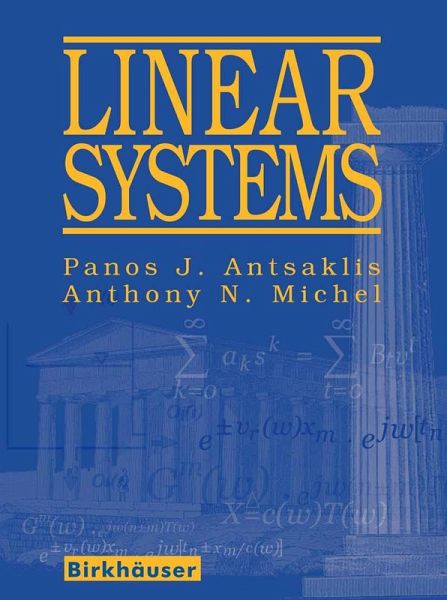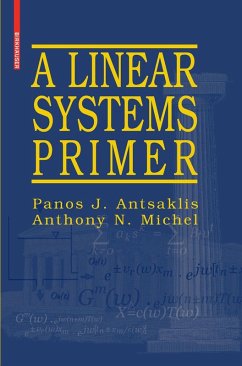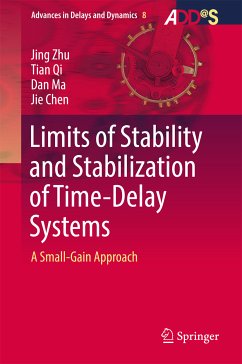
Linear Systems (eBook, PDF)
Versandkostenfrei!
Sofort per Download lieferbar
104,95 €
inkl. MwSt.
Weitere Ausgaben:

PAYBACK Punkte
52 °P sammeln!
"There are three words that characterize this work: thoroughness, completeness and clarity. The authors are congratulated for taking the time to write an excellent linear systems textbook!"-IEEE Transactions on Automatic ControlLinear systems theory plays a broad and fundamental role in electrical, mechanical, chemical and aerospace engineering, communications, and signal processing. A thorough introduction to systems theory with emphasis on control is presented in this self-contained textbook, written for a challenging one-semester graduate course. A solutions manual is available to instructo...
"There are three words that characterize this work: thoroughness, completeness and clarity. The authors are congratulated for taking the time to write an excellent linear systems textbook!"
-IEEE Transactions on Automatic Control
Linear systems theory plays a broad and fundamental role in electrical, mechanical, chemical and aerospace engineering, communications, and signal processing. A thorough introduction to systems theory with emphasis on control is presented in this self-contained textbook, written for a challenging one-semester graduate course. A solutions manual is available to instructors upon adoption of the text. The book's flexible coverage and self-contained presentation also make it an excellent reference guide or self-study manual.
For a treatment of linear systems that focuses primarily on the time-invariant case using streamlined presentation of the material with less formal and more intuitive proofs, please see the authors' companion book entitled A Linear Systems Primer.
-IEEE Transactions on Automatic Control
Linear systems theory plays a broad and fundamental role in electrical, mechanical, chemical and aerospace engineering, communications, and signal processing. A thorough introduction to systems theory with emphasis on control is presented in this self-contained textbook, written for a challenging one-semester graduate course. A solutions manual is available to instructors upon adoption of the text. The book's flexible coverage and self-contained presentation also make it an excellent reference guide or self-study manual.
For a treatment of linear systems that focuses primarily on the time-invariant case using streamlined presentation of the material with less formal and more intuitive proofs, please see the authors' companion book entitled A Linear Systems Primer.
Dieser Download kann aus rechtlichen Gründen nur mit Rechnungsadresse in A, B, BG, CY, CZ, D, DK, EW, E, FIN, F, GR, HR, H, IRL, I, LT, L, LR, M, NL, PL, P, R, S, SLO, SK ausgeliefert werden.












